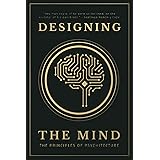
Download the free Kindle app and start reading Kindle books instantly on your smartphone, tablet, or computer - no Kindle device required.
Read instantly on your browser with Kindle for Web.
Using your mobile phone camera - scan the code below and download the Kindle app.

OK
Personal Knowledge: Towards a Post-Critical Philosophy Paperback – August 15, 1974
The tendency to make knowledge impersonal in our culture has split fact from value, science from humanity. Polanyi wishes to substitute for the objective, impersonal ideal of scientific detachment an alternative ideal which gives attention to the personal involvement of the knower in all acts of understanding. His book should help to restore science to its rightful place in an integrated culture, as part of the whole person's continuing endeavor to make sense of the totality of his experience. In honor of this work and his The Study of Man Polanyi was presented with the Lecomte de Noüy Award for 1959.
- Print length428 pages
- LanguageEnglish
- PublisherUniversity of Chicago Press
- Publication dateAugust 15, 1974
- Dimensions5.75 x 1 x 8.75 inches
- ISBN-100226672883
- ISBN-13978-0226672885
The Amazon Book Review
Book recommendations, author interviews, editors' picks, and more. Read it now.
Similar items that may ship from close to you
Product details
- Publisher : University of Chicago Press; First Edition (August 15, 1974)
- Language : English
- Paperback : 428 pages
- ISBN-10 : 0226672883
- ISBN-13 : 978-0226672885
- Item Weight : 1.15 pounds
- Dimensions : 5.75 x 1 x 8.75 inches
- Best Sellers Rank: #1,483,405 in Books (See Top 100 in Books)
- #5,206 in History & Philosophy of Science (Books)
- #39,427 in Philosophy (Books)
- Customer Reviews:
About the author

Discover more of the author’s books, see similar authors, read author blogs and more
Customer reviews
Customer Reviews, including Product Star Ratings help customers to learn more about the product and decide whether it is the right product for them.
To calculate the overall star rating and percentage breakdown by star, we don’t use a simple average. Instead, our system considers things like how recent a review is and if the reviewer bought the item on Amazon. It also analyzed reviews to verify trustworthiness.
Learn more how customers reviews work on AmazonReviews with images
-
Top reviews
Top reviews from the United States
There was a problem filtering reviews right now. Please try again later.
Secondly, after reading any given section, be it one page long or twenty, write down a couple sentences of takeaway knowledge. Obviously, you can look to Polanyi's italicized sentences for guidance towards the most noteworthy ideas. But search particularly for those keywords that strike you in ways you might not expect. Find the dictional centres around which the rest of the words revolve. In this way you will set yourself up for a third instruction: you are learning a new language.
Consider reading Personal Knowledge less like a philosophy lecture and more like a storybook in a foreign language. Truly, the text demands immersion into the title itself, this new and unassuming paradox coined by Polanyi--this "personal knowledge"--and immersion into all the unexpected stories of which the author draws upon to make his point. Albeit, the logical flow of Polanyi's argument is not contingent upon all of these pieces. Polanyi himself acknowledges time and time again how many parts are "digressions," "beside the point," or "merely interesting." After struggling through chapter five, you may admittedly feel betrayed by the beginning of six: "the previous chapter was a digression" (132). (Not to tempt you with skipping chapter five--don't). I would go so far as to say that, from the standpoint of logician's progress, four-fifths of the text is non-essential material.
That being said, the four-fifths may actually be quite essential in the sense of immersion. Within the four-fifths are surprising stories of all kinds: speech and mathematics, evolution and biology, crystallography and communications and probability, reason, faith, doubt, God, etc. Each of the different narratives pushes and prods our understanding of personal knowledge, and not just that, each narrative expands the meanings of a whole arsenal of words employed by Polanyi to make his point. Of course, describing this expansion is difficult at best, and it really can only be experienced--a gestalt sensation like much of what Polanyi describes. So allow me one final direction for the novice reading.
Do not skip the preface; read it slowly; write a paragraph about what it means to you and proceed with the rest of the book. Then, when you have finished going through every narrative, every dead-end, and every digression, go back to the preface. Read it again slowly and appreciate your new context. In hindsight, the first reading will feel shallow and small, even if it felt fine at the time. Acknowledge how the words are all the same as before, yet they all have new functions and new meanings with a new background. The second preface reading will have all the colours and currents of the deep river in which you submerged yourself for four hundred pages. We may call the shift of colour our second simplicity.
THE COHERENT WHOLE:
The plan of the book is four-fold.
(1) We notice that even in the most objective sciences, we have to make subjective judgements. The situation relies even more on our subjective selves the less formalized a discipline becomes.
(2) This observation spurs a long meditation on how our objective standards and subjective skills go together. The melding of the two, of the subjective and objective, is what Polanyi calls Personal Knowledge.
(3) This meditation allows us to attack the question, How can we be confident in our knowledge, seeing that it relies on our finite and error prone selves? The answer is, strangely perhaps, that though our judgements might be erroneous, we nevertheless feel compelled to make personal commitments to making our worlds of experience more satisfactory.
(4) Our conclusion opens up a view of all of life, where each creature uses its tacit skill to achieve unprecedented forms of understanding. The discarded view is the idea that life's creative outburst is the result of mechanistic, formal processes. The new view is that life's lifeblood is a organic gestalt, where parts contribute to wholes in unprecedented and non predictable ways.
THE DISCURSIVE SIDE:
Outside of this main plan, yet contributing to it, we travel over a huge range of territory. Physics, mathematics, psychology, biology, politics, history, religion, philosophy are all called into play. Along the way, we critique Marxism, scientism, mechanism, anti-traditionalism, over-traditionism, rationalism and more. It's quite an adventure. In it all, Polanyi says, "look and see how it all goes together." And it does.
APPRAISAL:
History and tradition might, and I think should, look upon Polanyi's work favorably. It is a very well argued work. His discursive range is vast, and for dilettantes, a smorgasbord of delight. And large portions of it are incontestably true (very rare for philosophy). A blemish appears to me Polanyi's realism. It seems Polanyi is unsure that we ever actually make contact with the real world, though we must nevertheless accept naively the appearances we're given. It would have been better if he had been aware of or argued for an Idealist conception of reality, where what is given in experience is actually the world. In this case, a gnawing sense of unreality about our knowing acts, would have transfigured into a joyful contact with actuality. But this means, at least, Idealists can appropriate his thoughts and feel their full vigor.
On that topic, the preface itself is worth the price of the entire book! It very clearly outlines not just Polanyi's central premises, but Polanyi the person. BUT it must me studied, not read. In Polanyi's own terms, knowledge requires commitment, which implies bias, and profiting from this volume takes a LOT of effort due to the stylistic and special linguistic significance of many terms, which are not used in their ordinary sense.
Of course you could say that about all philosophy of science texts, but this book is unique in that it doesn't "start and end with words" like a lot of texts that seem to just be an ego outing by the author to dance with semantics, but actually helps the reader look at her life through different lenses, frames, focuses and zooms as we examine the practical assumptions we make when jumping from evidence to explanation. Highly recommended, but not for the faint of heart or time constrained soul!
Top reviews from other countries
Many (most) people today have only a very hazy idea of what proper scientific method is, and what characterises good science practise. Polanyi shows that far from being all cut and dried as popular mythology would have it, the progress of science depends to a much greater extent than commonly recognised on what he calls "tacit knowledge": the hunch, the smell of a problem, a sense of how it ought to be.
If you want to know how science really works, from a master of the art, and you like engaging in profound thought, then this book is for you.
Yes, by the greatest french intellectual of the 20th century, speaking about the hungarian-british scientist turned philosopher.
Don't lose time reading Sartre, Hegel, Kant, whatever. The esssentials are in this book: real philosophy about real things, only useful abstractions, deep and also vibrant.
This gem has been "hiding", so to speak, since the 1950s. Yes, only a small minority has enjoyed it for over half a century.
You can for around 10 pounds ... And hey, beware: I DO NOT WORK FOR AMAZON, IN SPITE OF APPEARANCES !!!!!!!!!
This is my own personal bible, that's all.
Good service form this seller, would use them again.










